
When Your Partner isn’t Vegan: Vegans and Omnivores in Relationships, Dating Non Vegans & How to Keep the Peace at Home (Part 2)
Nov 03, 2023
Show Notes:
- Our online vegan cooking school My Brownble
- Part 1 of this series of episodes on vegans and omnivores in relationships
- Colleen Patrick Goudreau's episode in the Food for Thought Podcast, “Should vegans date non vegans?”
Today we’re continuing where we left off in part 1 in talking about perspectives, tips and mindsets when sharing your life with a non vegan partner or when being single and in the dating scene, and of course, all of the tips I’ve shared in part 1 and the ones I’ll be sharing today in part 2, can apply in different ways to friends and family members even if they aren’t romantic partners. Start with part 1 if you haven’t read or listened yet, and today we’re heading right into more practical tips, a helpful exercise and a great resource that might offer additional support if you’re vegan and single.
Eating, cooking, shopping and other practical tips

Kids negotiate all the time and so should we
Don't be afraid of having conversations with your partner on what things can be set in middle ground. For example: would your partner consider keeping the home vegan like my hubby said he wanted to (i.e. no animal products in your meals at home)? Will you have to cook both vegan and meat-based dishes or can you share the task so you don't have to cook meat if this doesn't agree with you anymore? Can you have certain days a week in which all meals are vegan? You get the idea. Have the conversations, there is a place where you can both feel a little more comfortable in.
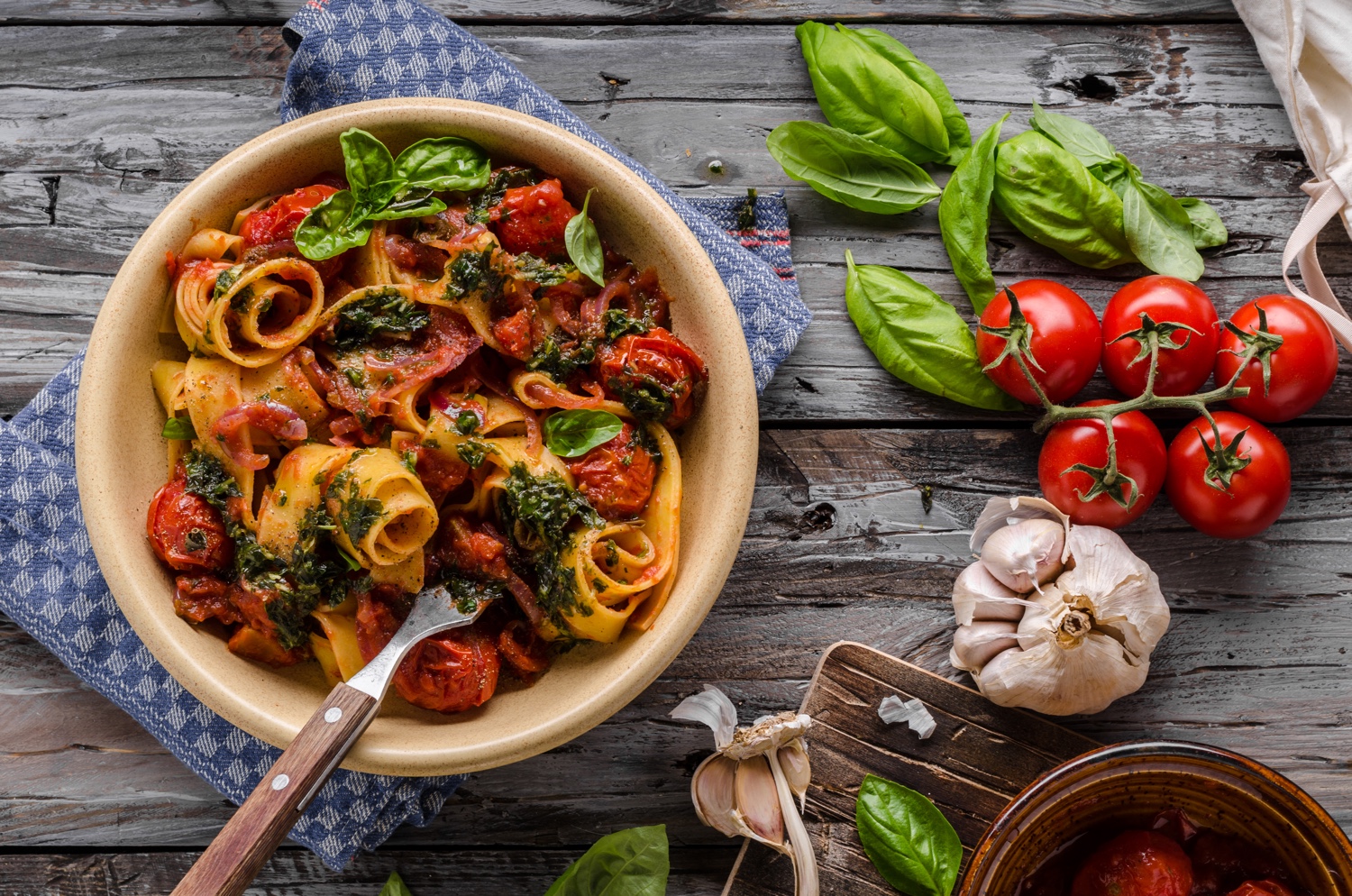
Cook amazing, delicious vegan food
I can't tell you how many friends who are total omnivores have started making weekly vegan meals because of the foods they've had at our house or at vegan restaurants. I always say it! The hardest obstacle is the fear of the food and social situations, so feed them delicious vegan food and show them how nothing needs to change when it comes to being social. You have delicious recipes here and tons more in our online vegan cooking school
Make the vegan dish the foundation of your meal.
Build your meal upon delicious vegan sides, or even main dishes, and then it's easy for anyone who wants to eat an animal-based dish to make it and add it to his or her meal.
Make the classic dishes vegan so everyone can enjoy them
Things like mashed potatoes, desserts, pastas, sauces, gravies, soups, pancakes, french toast, muffins, cupcakes. All of these can be made vegan. Nobody will know the difference and everyone will be able to enjoy them. Your partner can always round out the meal or serve additional dishes that include meat, diary or eggs.
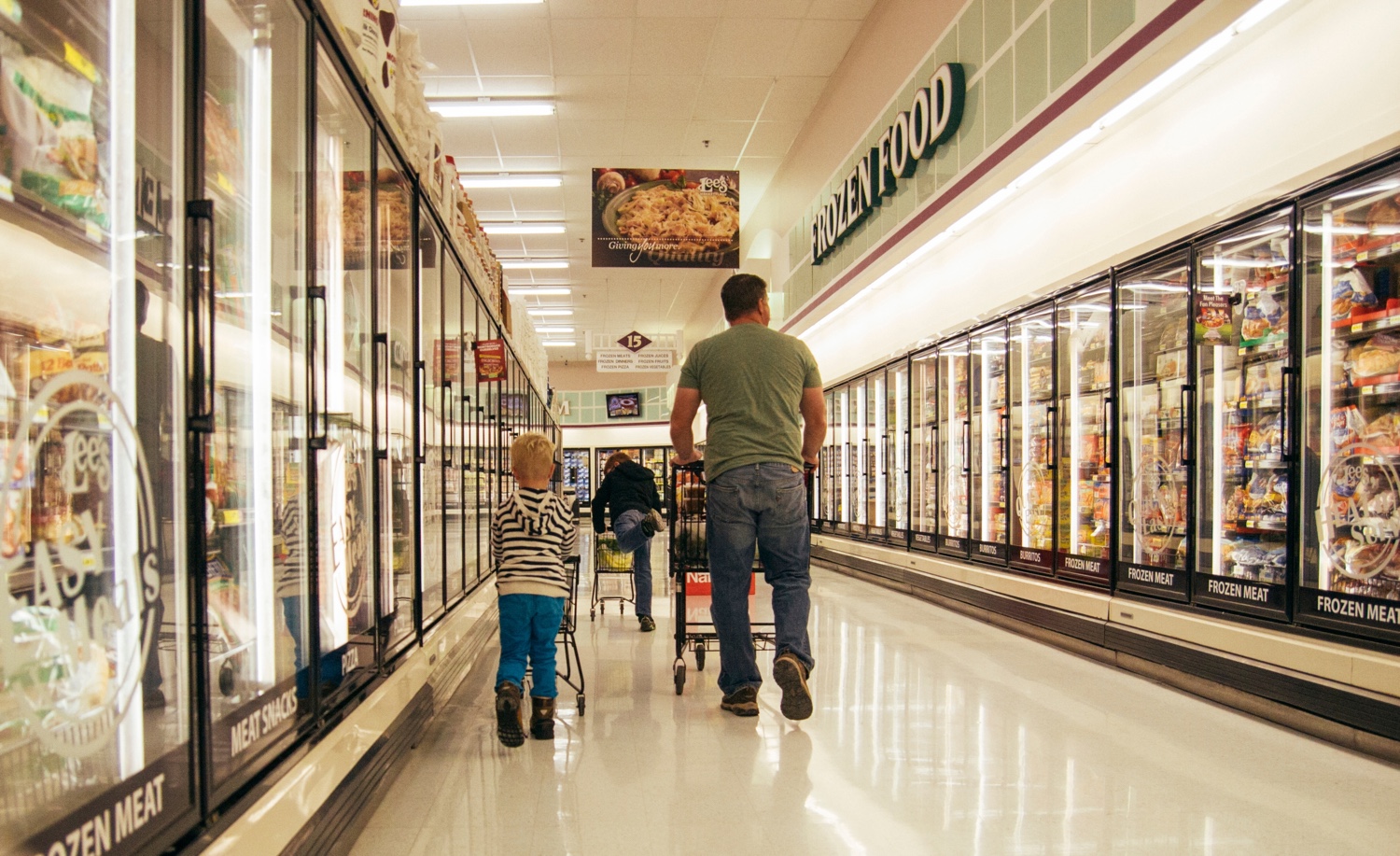
Shop together
It will be much easier and better on the relationship if you start sharing tasks. That includes the cooking itself, especially if cooking meat now makes you uncomfortable, but it's especially true with shopping. There's something really powerful that happens the moment you shop. That's the moment in which you're really making the tough choices and it's the moment that causes the impact and the difference between contributing, or not, to an industry you don't want to support. If not buying meat is not an option in your household, sharing the experience of the shopping trip will help you. If doing this at the store is challenging, I’ve found that shopping for groceries online is easier for some people. Your partner can get what they need and you can get what you need, but there's less separation between you. For the health of the relationship and your own emotional stress, this really helps.
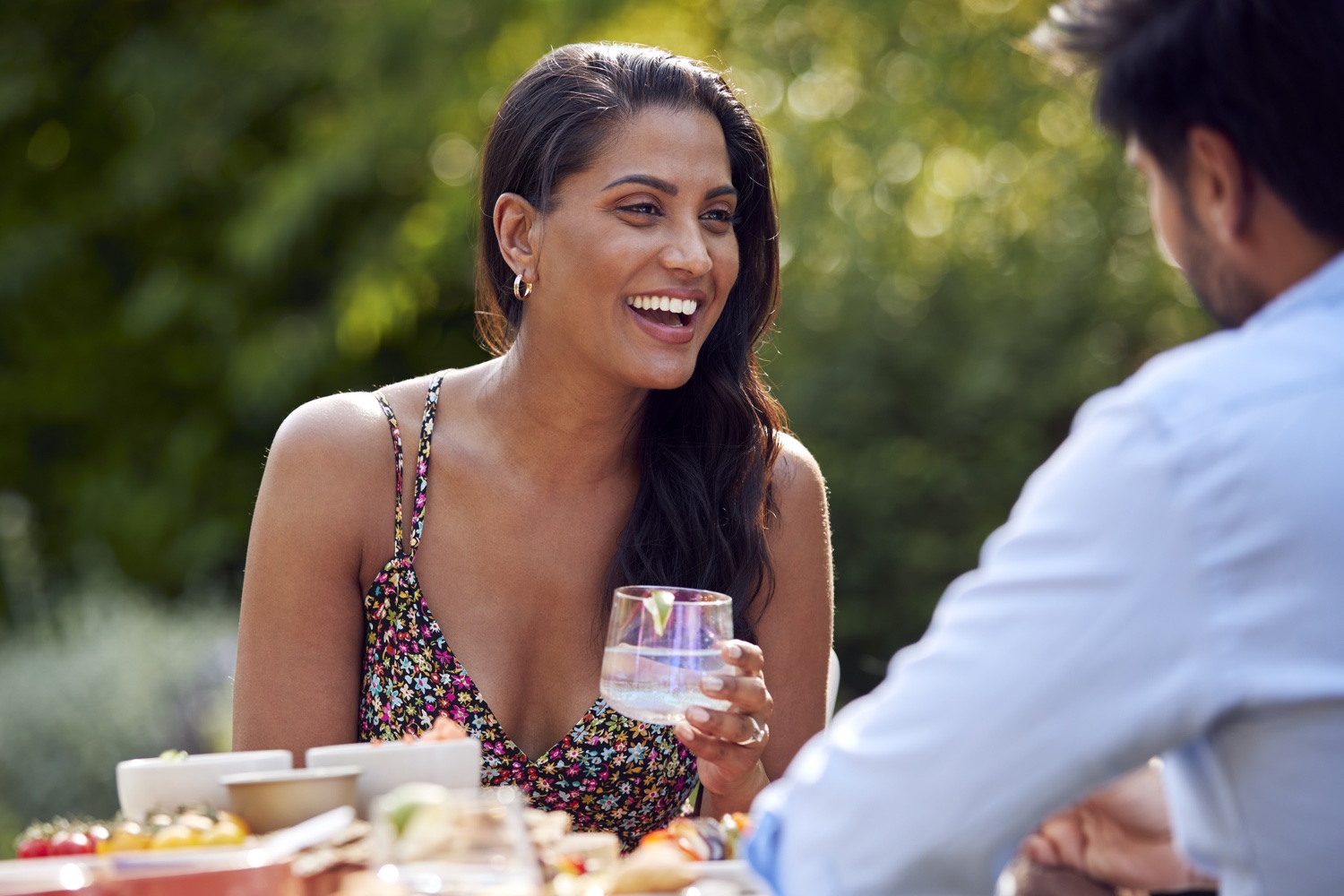
Find restaurants where you can both enjoy delicious food
There are plenty of restaurants that cater to both omnivores and vegans, and all you need to do is a little research and look at some menus ahead of time. An app or website like happy cow really helps. You don't have to settle with a house salad made out of iceberg lettuce and some tomato, and your partner doesn't have to settle for something they don’t like and then having to stop at Burger King on the way back. There are so many ways to find a joyful and scrumptious middle.
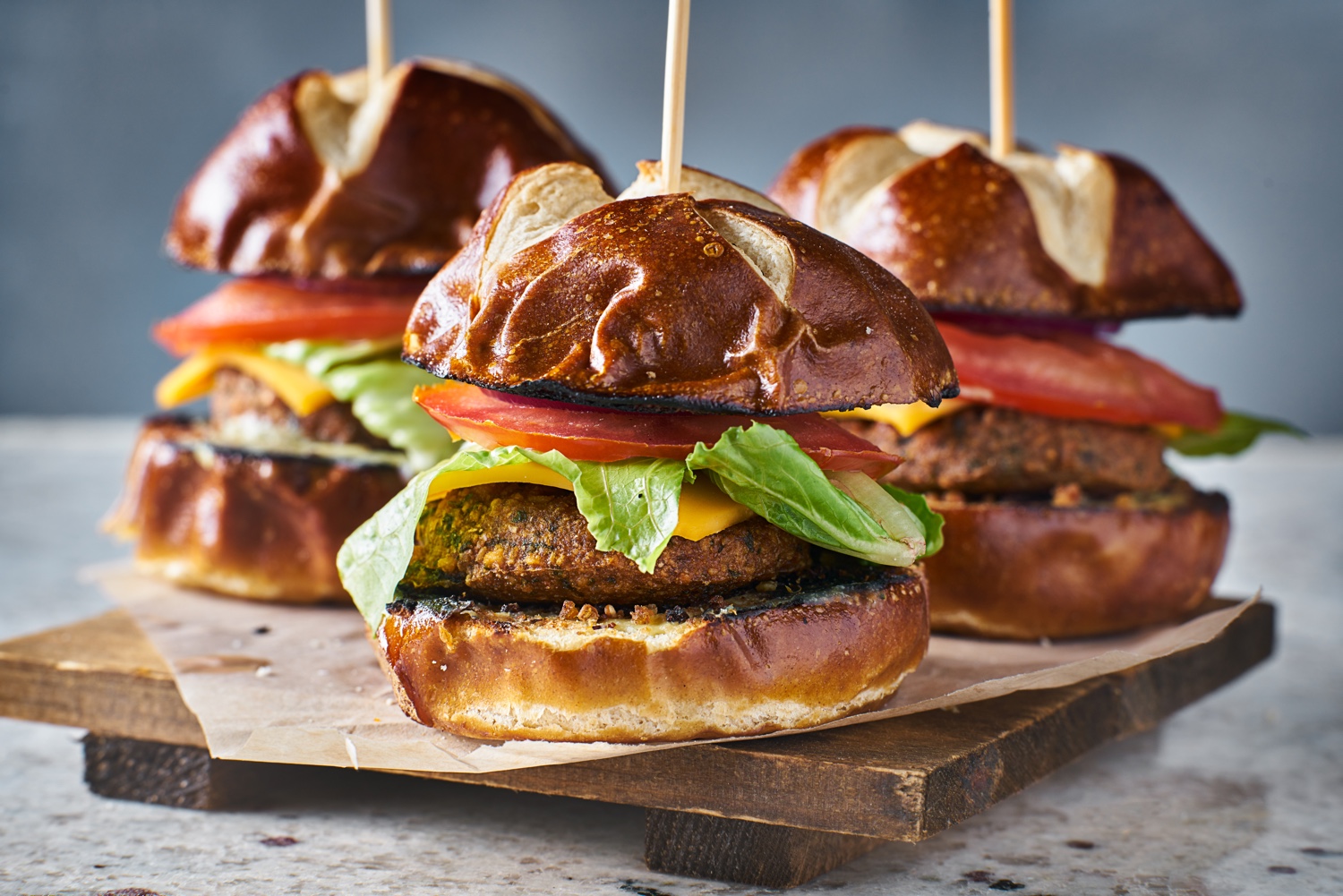
Introduce vegan meatiness
Nowadays there are so many incredible vegan restaurants that you and your significant other can dine on anything from pulled BBQ jackfruit tacos or sliders, to perfect vegan cheeseburgers, vegan donuts, vegan pot roasts, seitan Philly cheesesteak, you name it we can find it or make it. If you're dealing with a resistant loved one who just won't budge, don't start by feeding them a kale salad no matter how delicious you think it is, start with something meaty and cheesy. You'll create some breathing room and they'll be much more open minded to trying othe plant based options later on.
Talk and set boundaries together, especially if you're the one doing the cooking
What are you or aren't you comfortable with? Sometimes having some simple boundaries is necessary in order to keep the peace at home. Especially if you're one of those "hold it in and then explode" people. Are you ok with making different meals? Are you ok in handling or cooking meat at all? Have the conversations before the road gets rocky because of lack of communication.
Don't make it all about the food
Remember that your relationship is based on so much more than the food you share together, so if eating is causing some issues, take a step back and do something together that has nothing to do with food. Go to the movies, see friends, go on long walks or hikes together, go bowling, or on a quick day trip, relax on the couch and enjoy some time together. If your relationship is flowing, everything else will fall into place with time.
If your partner or someone you plan on dating isn’t vegan but is vegetarian, pescatarian, flexitarian, etc.
Remember that you have more in common with them than with someone who hasn’t given eating animal products any thought. Don’t look at the gap between you, look at all the steps you’ve both taken so far that have put you on a similar path. This situation sometimes makes us think that because they’re a few steps further they’re easier to convince to go fully vegan, but all the previous tips should be applied in their case as well because everyone deserves respect and listening to where they are coming from. Focus on the positive that you are with someone who you share even more things with, and avoid the curious social phenomenon that happens when you separate yourself in some way from a larger group, and you and all the other mini groups out there start competing and measuring sticks. You have more in common than you know.
Also remember that a 90% vegan, or an 80% vegan is doing more for animals than most people, whether you have to include moments of flexibility because there was no other way to keep the peace in your life, or whether that’s all (or even less) of what your partner is willing to try, you are still doing more than most and that’s a great thing.

The tiny bridges exercise
Something we sometimes don't like to see when it comes to these issues is that we all have things in common. There are characteristics that are shared between two people no matter how different they might seem, whether it's a hunter in conversation with an animal activist, or two people with opposite opinions on a presidential candidate. We've just been taught by everything around us, that we need to zero in on the things that separate us from others. That's why clubs, religions, fan bases and even particular hobbies are so popular. It's so much easier to just join people who think and like what we do.
The problem with this is that not only would we immediately enter Stepford territory, and the world would become a very boring place with no growth whatsoever, but when it comes to veganism, most of us have people we love who don't eat the way we do and we need to find that point of connection again so we can feel like our normal joyful selves. This includes firmly feeling like we're a part of our own world and circle, no matter how many different choices we make.
So here's what I'm proposing for this week. Whenever you encounter anyone this week, whether that's a co-worker, the bus driver, a teacher, a family member, someone you dislike, your best friend or a stranger on the street, find something you share. It can be a character trait, your love of something similar, your taste in music or in books, an experience, etc. After a while, once finding little bridges that join you together becomes the default, move on to thinking about people who have opposite views to you. People who are figuratively on the other side of that line in the sand. Repeat this exercise with them until you find the bridges that will now help you build something new together. The more we find the bridges that we can now build new foundations upon, the better and more supported we'll feel, and the less reactive the people around us will feel in return.
There are still so many things we will have that are on opposite sides of the spectrum, but can't you already see the shift that happens when we turn the other person into someone we share traits with?
Any conversation we will have will contain much less resistance, and even when not talking to each other, the relationship has already changed, and our feeling of belonging has already changed.
I try to remember this exercise whenever I'm having a disagreement with someone, or I keep having a very deep and strong emotional reaction to someone. Chances also are they hit a nerve, and sadly due to the complexity of human psychology, this is usually a sign that we share a similar trait we haven't wanted to acknowledge in ourselves.
By building these little bridges of things we also see in ourselves, what we do is humanize people, we turn them from the person on the opposite side of the battlefield, to this reality: we are all sharing space in this world with people who are different from us and this awesome diversity is what creates change in the world, and the road there is sometimes very messy, but we can do our best to find connections instead of separation. We can go from feeling "othered" and "othering" those around us, to finding those common threads that will make us more understanding, and others less resistant, to change.
Any conversation we will have will contain much less resistance, and even when not talking to each other, the relationship has already changed, and our feeling of belonging has already changed.
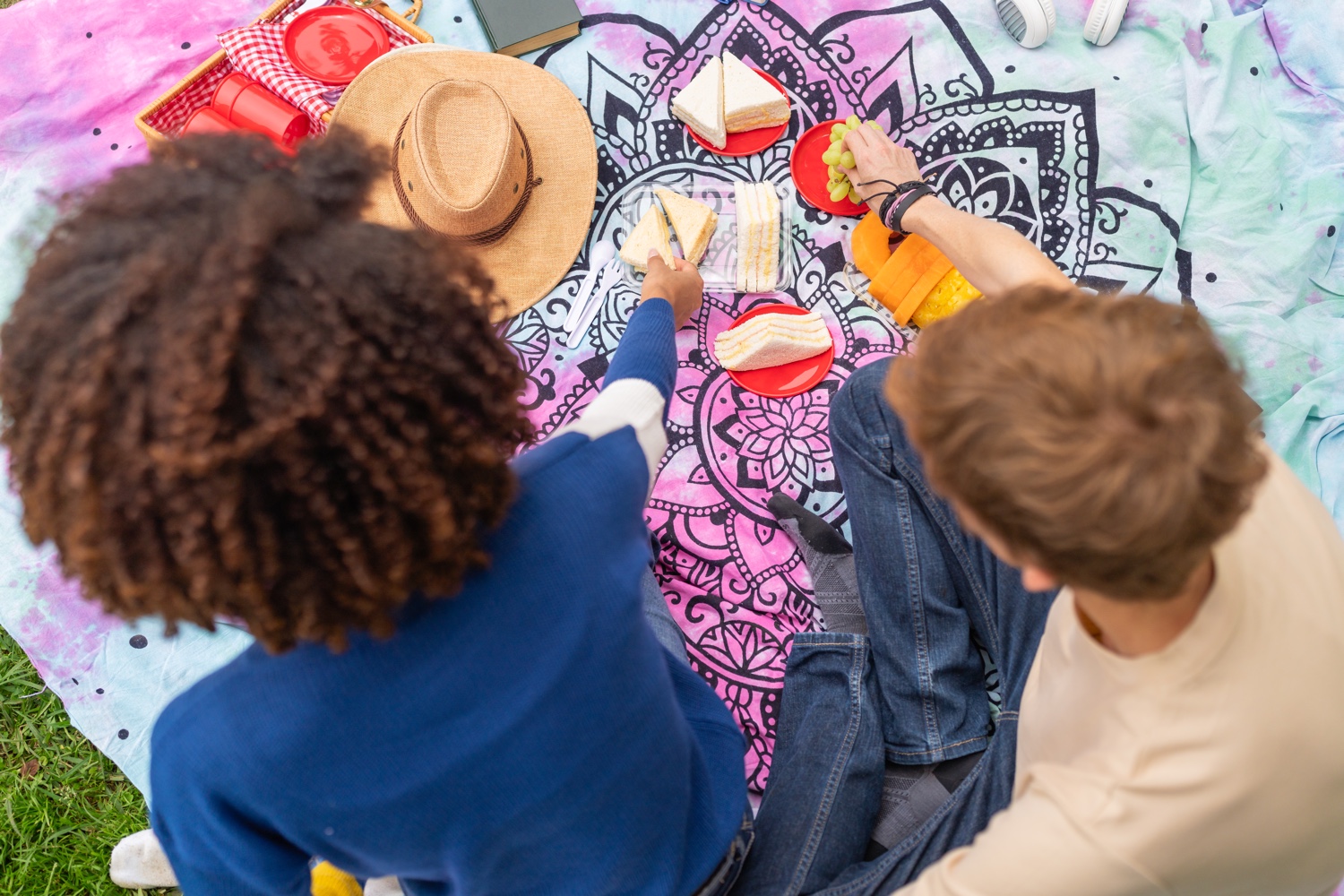
We cannot rely on the outcome of what our loved ones will do eventually, but we can try our best to find a healthy middle ground for the relationship, if it’s something that is important to us. Any tips for positive relationship communication, or maintaining the health of our relationships will help you with this, as in a way, you can see it as an aspect in which you have different or opposing views on, as can happen with many other points of opposition in partnerships.
A 4 minute resource for single vegans, currently in the dating scene
To finish, I want to guide you to a podcast episode by the wonderful Colleen Patrick Goudreau in the Food for Thought Podcast, it’s a 4 minute episode where she answers the question “should vegans date non vegans?”, I really loved her way of seeing this conundrum and I think it might also be helpful to all my single vegans out there.
Don't forget to share this post with anyone who you know is struggling with keeping a healthy balance in their relationship and their home. We'd also love to hear your story in the comments below, what are some of the challenges you've faced when sharing your life with an omnivore?
🧑🍳
You might also like...
Our Online Cooking School and Courses
Don't miss our weekly goodies!
Our best FREE content straight to your inbox




